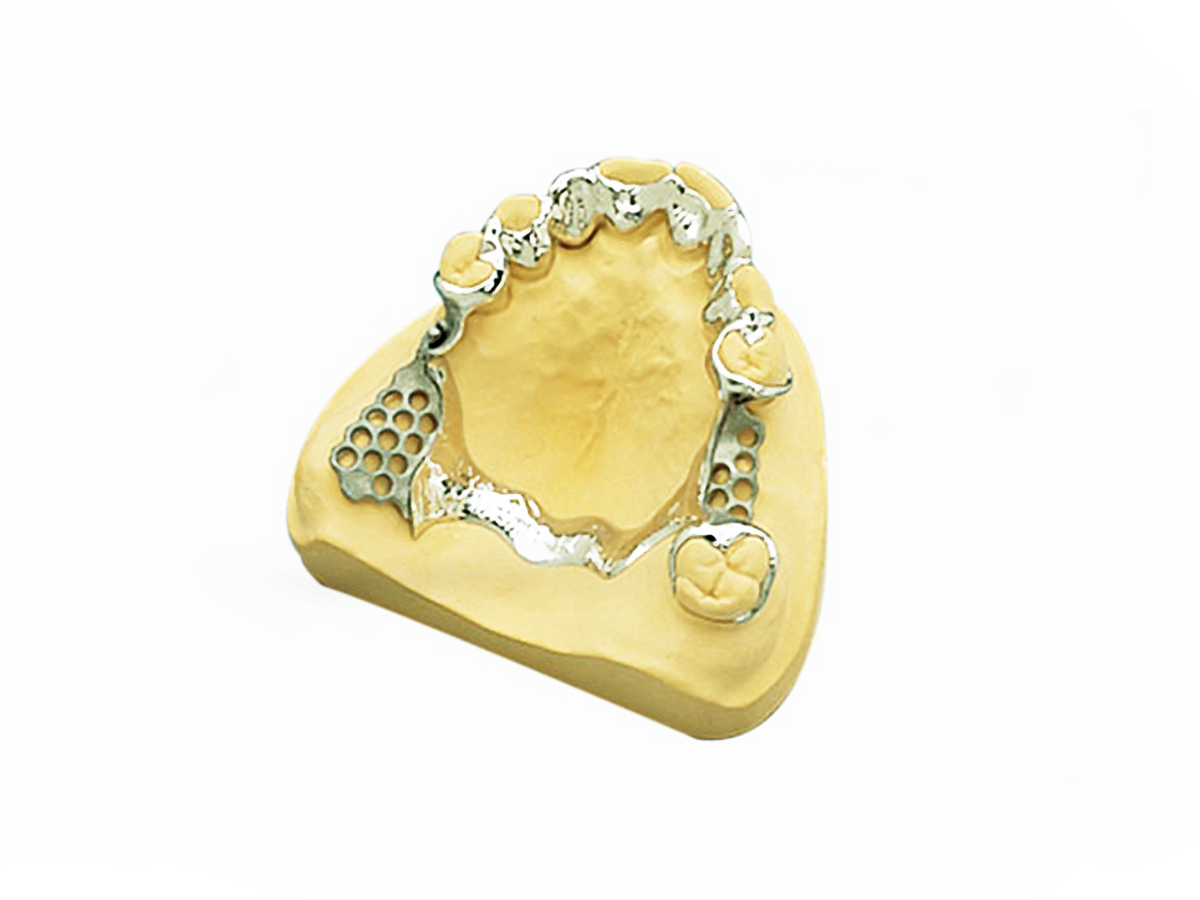Custom Titanium 3D Printing: Rapid Prototyping And Production for Dental Needs
Introduction
Custom titanium 3D printing offers precise, efficient solutions for the dental industry, enabling rapid prototyping and production of crowns, bridges, and implants. Utilizing advanced techniques such as Selective Laser Melting (SLM) and Direct Metal Laser Sintering (DMLS), medical-grade titanium alloys like Ti-6Al-4V ELI (Grade 23) enable high-strength, corrosion-resistant, and biocompatible dental devices.
Compared to traditional casting or milling, custom titanium 3D printing accelerates production by up to 60%, achieves superior accuracy (±0.03 mm), and allows the fabrication of highly personalized dental solutions.
Applicable Material Matrix
Material | Density (g/cm³) | Tensile Strength (MPa) | Yield Strength (MPa) | Elongation (%) | Biocompatibility |
|---|---|---|---|---|---|
4.43 | 900 | 830 | 10% | Excellent | |
4.52 | 950 | 880 | 12% | Excellent | |
4.51 | 344 | 275 | 20% | Excellent | |
4.43 | 950 | 880 | 14% | Very Good | |
4.46 | 860 | 795 | 18% | Very Good | |
4.65 | 980 | 930 | 12% | Good |
Material Selection Guide
Ti-6Al-4V ELI (Grade 23): Ideal for dental implants and abutments, combining superior mechanical properties and biocompatibility, ensuring long-term osseointegration and patient safety.
Ti-6Al-7Nb: Recommended for crowns and partial frameworks requiring high mechanical strength and corrosion resistance in oral environments.
CP-Ti Grade 2: Best suited for lightweight crowns and bridges with moderate mechanical loads and maximum biocompatibility.
Ti-6Al-4V (Grade 5): Suitable for strong, lightweight prosthetics requiring additional fatigue resistance.
Ti-5Al-2.5Sn (Grade 6): Excellent for orthodontic applications where moderate strength and high ductility are critical.
Ti-6Al-2Sn-4Zr-2Mo: Ideal for prosthetic structures exposed to higher functional stresses and demanding durability.
Process Performance Matrix
Attribute | Titanium Dental 3D Printing Performance |
|---|---|
Dimensional Accuracy | ±0.03 mm |
Density | >99.8% |
Layer Thickness | 20–40 μm |
Surface Roughness | Ra 5–10 μm |
Minimum Feature Size | 0.2 mm |
Process Selection Guide
High Precision: Essential for achieving tight fits in dental crowns, bridges, and implants, with tolerances as tight as ±0.03 mm.
Rapid Turnaround: Reduces dental device production lead times by up to 60% compared to traditional casting and milling.
Superior Biocompatibility: Titanium’s bio-inert properties ensure no adverse reactions, crucial for long-term dental implantation.
Customized Solutions: Supports intricate designs such as complex bridge frameworks, custom implant abutments, and full-arch prostheses.
Case In-Depth Analysis: Custom Titanium Dental Implant Production with Ti-6Al-4V ELI
A dental laboratory required fast, accurate production of customized implants matching individual patient anatomies. Using our titanium 3D printing service with Ti-6Al-4V ELI, we produced implants achieving densities over 99.8%, tensile strength of 900 MPa, and precision within ±0.03 mm. The patient-specific lattice designs improved bone integration and shortened recovery times by 25%. Post-processing included fine CNC machining for interface precision and electropolishing to enhance surface smoothness and hygiene.
Industry Applications
Dental and Maxillofacial
Custom dental implants and abutments.
Lightweight crowns and bridges with perfect fit.
Maxillofacial prosthetics for reconstruction surgeries.
Medical and Healthcare
Surgical guides for precise implant placement.
Custom jawbone prostheses for trauma recovery.
Orthodontic device components and brackets.
Prosthodontics
Full arch restorations with titanium frameworks.
Implant-supported dentures and hybrid prostheses.
Temporary prosthetic solutions with high mechanical reliability.
Mainstream 3D Printing Technology Types for Dental Applications
Selective Laser Melting (SLM): Ideal for producing highly accurate and dense titanium dental parts.
Direct Metal Laser Sintering (DMLS): Perfect for intricate dental prosthesis geometries with tight tolerances.
Binder Jetting: Suitable for rapid prototyping of dental devices and early design validations.
Electron Beam Melting (EBM): Best for producing larger dental and craniofacial structures with excellent mechanical properties.
Laser Metal Deposition (LMD): Useful for repair or feature enhancement of dental frameworks.
FAQs
What titanium alloys are best suited for 3D printed dental implants and prosthetics?
How accurate is 3D printing for producing custom dental frameworks and implants?
What surface treatments improve the biocompatibility of titanium dental implants?
How does titanium 3D printing enhance patient-specific dental restorations?
What are the advantages of titanium 3D printed dental parts over traditional cast metal prostheses?

